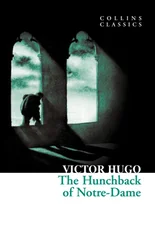Victor Hugo - The Man Who Laughs
Здесь есть возможность читать онлайн «Victor Hugo - The Man Who Laughs» — ознакомительный отрывок электронной книги совершенно бесплатно, а после прочтения отрывка купить полную версию. В некоторых случаях можно слушать аудио, скачать через торрент в формате fb2 и присутствует краткое содержание. Жанр: literature_19, foreign_antique, foreign_prose, на английском языке. Описание произведения, (предисловие) а так же отзывы посетителей доступны на портале библиотеки ЛибКат.
- Название:The Man Who Laughs
- Автор:
- Жанр:
- Год:неизвестен
- ISBN:нет данных
- Рейтинг книги:3 / 5. Голосов: 1
-
Избранное:Добавить в избранное
- Отзывы:
-
Ваша оценка:
- 60
- 1
- 2
- 3
- 4
- 5
The Man Who Laughs: краткое содержание, описание и аннотация
Предлагаем к чтению аннотацию, описание, краткое содержание или предисловие (зависит от того, что написал сам автор книги «The Man Who Laughs»). Если вы не нашли необходимую информацию о книге — напишите в комментариях, мы постараемся отыскать её.
The Man Who Laughs — читать онлайн ознакомительный отрывок
Ниже представлен текст книги, разбитый по страницам. Система сохранения места последней прочитанной страницы, позволяет с удобством читать онлайн бесплатно книгу «The Man Who Laughs», без необходимости каждый раз заново искать на чём Вы остановились. Поставьте закладку, и сможете в любой момент перейти на страницу, на которой закончили чтение.
Интервал:
Закладка:
"It is done," said the doctor.
And from out all their mouths, vaguely stammered in every language, came the dismal utterances of the catacombs.
"Ainsi soit-il!"
"Mea culpa!"
"Asi sea!"
"Aro raï!"
"Amen!"
It was as though the sombre voices of Babel were scattered through the shadows as Heaven uttered its awful refusal to hear them.
The doctor turned away from his companions in crime and distress, and took a few steps towards the gunwale. Reaching the side, he looked into space, and said, in a deep voice, —
"Bist du bei mir?"[ 8 8 Art thou near me?
]
Perchance he was addressing some phantom.
The wreck was sinking.
Behind the doctor all the others were in a dream. Prayer mastered them by main force. They did not bow, they were bent. There was something involuntary in their condition; they wavered as a sail flaps when the breeze fails. And the haggard group took by degrees, with clasping of hands and prostration of foreheads, attitudes various, yet of humiliation. Some strange reflection of the deep seemed to soften their villainous features.
The doctor returned towards them. Whatever had been his past, the old man was great in the presence of the catastrophe.
The deep reserve of nature which enveloped him preoccupied without disconcerting him. He was not one to be taken unawares. Over him was the calm of a silent horror: on his countenance the majesty of God's will comprehended.
This old and thoughtful outlaw unconsciously assumed the air of a pontiff.
He said, —
"Attend to me."
He contemplated for a moment the waste of water, and added, —
"Now we are going to die."
Then he took the torch from the hands of Ave Maria, and waved it.
A spark broke from it and flew into the night.
Then the doctor cast the torch into the sea.
The torch was extinguished: all light disappeared. Nothing left but the huge, unfathomable shadow. It was like the filling up of the grave.
In the darkness the doctor was heard saying, —
"Let us pray."
All knelt down.
It was no longer on the snow, but in the water, that they knelt.
They had but a few minutes more.
The doctor alone remained standing.
The flakes of snow falling on him had sprinkled him with white tears, and made him visible on the background of darkness. He might have been the speaking statue of the shadow.
The doctor made the sign of the cross and raised his voice, while beneath his feet he felt that almost imperceptible oscillation which prefaces the moment in which a wreck is about to founder. He said, —
"Pater noster qui es in coelis."
The Provençal repeated in French, —
"Notre Père qui êtes aux cieux."
The Irishwoman repeated in Gaelic, understood by the Basque woman, —
"Ar nathair ata ar neamh."
The doctor continued, —
"Sanctificetur nomen tuum."
"Que votre nom soit sanctifié," said the Provençal.
"Naomhthar hainm," said the Irishwoman.
"Adveniat regnum tuum," continued the doctor.
"Que votre règne arrive," said the Provençal.
"Tigeadh do rioghachd," said the Irishwoman.
As they knelt, the waters had risen to their shoulders. The doctor went on, —
"Fiat voluntas tua."
"Que votre volonté soit faite," stammered the Provençal.
And the Irishwoman and Basque woman cried, —
"Deuntar do thoil ar an Hhalàmb."
"Sicut in coelo, sicut in terra," said the doctor.
No voice answered him.
He looked down. All their heads were under water. They had let themselves be drowned on their knees.
The doctor took in his right hand the flask which he had placed on the companion, and raised it above his head.
The wreck was going down. As he sank, the doctor murmured the rest of the prayer.
For an instant his shoulders were above water, then his head, then nothing remained but his arm holding up the flask, as if he were showing it to the Infinite.
His arm disappeared; there was no greater fold on the deep sea than there would have been on a tun of oil. The snow continued falling.
One thing floated, and was carried by the waves into the darkness. It was the tarred flask, kept afloat by its osier cover.
BOOK THE THIRD.
THE CHILD IN THE SHADOW
CHAPTER I.
CHESIL
The storm was no less severe on land than on sea. The same wild enfranchisement of the elements had taken place around the abandoned child. The weak and innocent become their sport in the expenditure of the unreasoning rage of their blind forces. Shadows discern not, and things inanimate have not the clemency they are supposed to possess.
On the land there was but little wind. There was an inexplicable dumbness in the cold. There was no hail. The thickness of the falling snow was fearful.
Hailstones strike, harass, bruise, stun, crush. Snowflakes do worse: soft and inexorable, the snowflake does its work in silence; touch it, and it melts. It is pure, even as the hypocrite is candid. It is by white particles slowly heaped upon each other that the flake becomes an avalanche and the knave a criminal.
The child continued to advance into the mist. The fog presents but a soft obstacle; hence its danger. It yields, and yet persists. Mist, like snow, is full of treachery. The child, strange wrestler at war with all these risks, had succeeded in reaching the bottom of the descent, and had gained Chesil. Without knowing it he was on an isthmus, with the ocean on each side; so that he could not lose his way in the fog, in the snow, or in the darkness, without falling into the deep waters of the gulf on the right hand, or into the raging billows of the high sea on the left. He was travelling on, in ignorance, between these two abysses.
The Isthmus of Portland was at this period singularly sharp and rugged. Nothing remains at this date of its past configuration. Since the idea of manufacturing Portland stone into Roman cement was first seized, the whole rock has been subjected to an alteration which has completely changed its original appearance. Calcareous lias, slate, and trap are still to be found there, rising from layers of conglomerate, like teeth from a gum; but the pickaxe has broken up and levelled those bristling, rugged peaks which were once the fearful perches of the ossifrage. The summits exist no longer where the labbes and the skua gulls used to flock together, soaring, like the envious, to sully high places. In vain might you seek the tall monolith called Godolphin, an old British word, signifying "white eagle." In summer you may still gather on those surfaces, pierced and perforated like a sponge, rosemary, pennyroyal, wild hyssop, and sea-fennel which when infused makes a good cordial, and that herb full of knots, which grows in the sand and from which they make matting; but you no longer find gray amber, or black tin, or that triple species of slate – one sort green, one blue, and the third the colour of sage-leaves. The foxes, the badgers, the otters, and the martens have taken themselves off; on the cliffs of Portland, as well as at the extremity of Cornwall, where there were at one time chamois, none remain. They still fish in some inlets for plaice and pilchards; but the scared salmon no longer ascend the Wey, between Michaelmas and Christmas, to spawn. No more are seen there, as during the reign of Elizabeth, those old unknown birds as large as hawks, who could cut an apple in two, but ate only the pips. You never meet those crows with yellow beaks, called Cornish choughs in English, pyrrocorax in Latin, who, in their mischief, would drop burning twigs on thatched roofs. Nor that magic bird, the fulmar, a wanderer from the Scottish archipelago, dropping from his bill an oil which the islanders used to burn in their lamps. Nor do you ever find in the evening, in the plash of the ebbing tide, that ancient, legendary neitse, with the feet of a hog and the bleat of a calf. The tide no longer throws up the whiskered seal, with its curled ears and sharp jaws, dragging itself along on its nailless paws. On that Portland – nowadays so changed as scarcely to be recognized – the absence of forests precluded nightingales; but now the falcon, the swan, and the wild goose have fled. The sheep of Portland, nowadays, are fat and have fine wool; the few scattered ewes, which nibbled the salt grass there two centuries ago, were small and tough and coarse in the fleece, as became Celtic flocks brought there by garlic-eating shepherds, who lived to a hundred, and who, at the distance of half a mile, could pierce a cuirass with their yard-long arrows. Uncultivated land makes coarse wool. The Chesil of to-day resembles in no particular the Chesil of the past, so much has it been disturbed by man and by those furious winds which gnaw the very stones.
Читать дальшеИнтервал:
Закладка:
Похожие книги на «The Man Who Laughs»
Представляем Вашему вниманию похожие книги на «The Man Who Laughs» списком для выбора. Мы отобрали схожую по названию и смыслу литературу в надежде предоставить читателям больше вариантов отыскать новые, интересные, ещё непрочитанные произведения.
Обсуждение, отзывы о книге «The Man Who Laughs» и просто собственные мнения читателей. Оставьте ваши комментарии, напишите, что Вы думаете о произведении, его смысле или главных героях. Укажите что конкретно понравилось, а что нет, и почему Вы так считаете.












